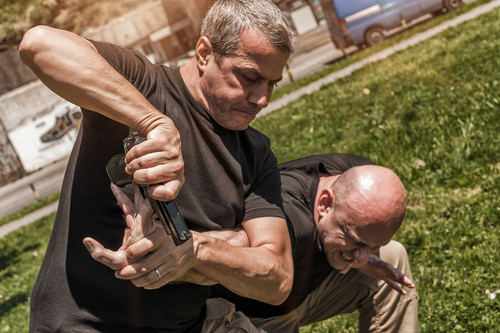What is Self-Defense in Criminal Law?
7 months ago by Justin M. Schiks
Self-defense is the use of force to protect oneself from the threat of harm. In Minnesota, a person is allowed to use self-defense if there is no opportunity to retreat and using reasonable force is necessary to protect themselves.
Attorney Justin M. Schiks would like to clarify what situations qualify as self-defense in Minnesota and what will be needed to prove your case in court.
Self-Defense in Minnesota
State legislatures have statutes defining what constitutes self-defense. Self-defense is an affirmative defense that a defendant can use to challenge a criminal charge.
In Minnesota, self-defense is permitted if the victim uses reasonable force to prevent bodily injury or harm.
While some states have “stand your ground” laws, which do not require a person to retreat if they feel threatened, Minnesota law requires you to retreat if a person is attempting to harm you. This means that you must do everything possible to remove yourself from the situation before resorting to self-defense.
Is Deadly Force Considered Self-Defense?
Eight states currently allow for a defendant to use deadly force as a self-defense measure. In a “stand your ground” state, you are permitted to use deadly force to defend yourself against an attacker.
This is not the case in Minnesota. Using deadly force should be your last resort, and only after you have exhausted all other options.
The use of deadly force is only permitted if you have reason to believe that you are in danger of “great bodily harm or death” and there is no reasonable opportunity to retreat or if you are preventing a felony-level offense in your own home.
Am I Required to Retreat in My Own Home?
If you are assaulted in your own home, you possess more rights than if you are out on the street. That’s because you have the right to defend yourself in your own home against any intruders without being prosecuted. This immunity from criminal sanctions is known as the Castle Doctrine.
Under the Castle Doctrine, there is no duty to retreat in your home. In State v. Glowacki, 630 N.W.2d 392 (Minn. 2001), the Minnesota Court of Appeals held that a person should be allowed to use reasonable force to defend himself or herself against an aggressor without the duty to retreat. However, the use of force employed must be a reasonable amount, meaning only enough to prevent the feared harm.
Is Self-Defense a Constitutional Right?
The Second Amendment explicitly states, “The right of the people to keep and bear Arms, shall not be infringed.” It has long been debated which situations this would apply to since the Amendment references a “well-regulated militia.”
In 2008, the U.S. Supreme Court ruled in District of Columbia v. Heller, 554 U.S. 570 (2008) that the U.S. Constitution protects an individual’s right to possess and use a firearm for traditionally lawful purposes. This would include the right to protect yourself in your home.
Proving Self-Defense
In order to use a self-defense claim, you must prove the following:
- No evidence of aggression or aggravation on your part;
- An actual and honest belief that you were in imminent danger of death or serious bodily harm and that the action taken was necessary to avert that danger; and
- Reasonable ground for that belief.
Attempting to prove self-defense can be difficult during trial. You will need to provide evidence showing that you were only attempting to protect yourself and not injure your assailant.
Finding witnesses who can back up your story will be extremely helpful, but you will need an experienced legal team on your side to prove your case.
A self-defense plea does not deny a person’s actions but provides a justification for them. The use of force must be comparable to the potential injuries you may have suffered. The burden lies with the prosecutor to prove that the amount of force the defendant used was not excessive.
While a prosecutor must establish the defendant’s guilt “beyond a reasonable doubt,” a self-defense plea will usually have a lower standard of the “preponderance of the evidence.” For a self-defense claim, the defendant must present credible and convincing evidence to show that it is “more likely than not” that his or her actions were necessary. If the self-defense claim is successful, the defendant will be found not guilty.
Contact a Woodbury, MN Criminal Defense Lawyer Today
When you are placed in a dangerous situation, you will do anything to save your life. At JS Defense, PA, we will do whatever it takes to stand up for your rights. Contact our legal team today to schedule your free consultation.

